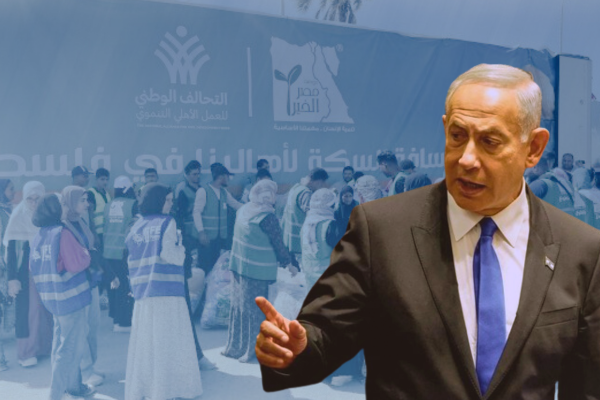Israel's Plan to Transfer Humanitarian Aid and Help in Gaza
Even in the aftermath of the war, the issue of controlling the Gaza Strip remains a source of concern for both Israel and the United States. The IDF's targeted operation in Shifa serves as further evidence of Hamas's relentless efforts to tighten its hold on the Strip through any available means.
 |
| Israel's Plan to Transfer Humanitarian Aid and Help in Gaza |
Today (Thursday), it was reported in the "Wall Street Journal" that an Israeli official within the security establishment has been in talks with mediating countries, which lack ties to Hamas, to garner regional support for Palestinian traders. Israel's strategy to eradicate the terrorist organization from Gaza faces significant obstacles.
Israel's Plan to Transfer Aid and Help in Gaza
The Israeli official engaged in discussions with representatives from Egypt, the United Arab Emirates, and Jordan to formulate a comprehensive strategy aimed at overthrowing Hamas's governance in the Gaza Strip.
The objective is to
- identify Palestinian leaders and business figures with no affiliations to Hamas,
- grant them authority, and garner regional support to install them as new leaders in the Strip
Under the plan, aid will enter Gaza through both land and sea routes after undergoing inspection by Israeli authorities. The aid will be directed to large warehouses in central Gaza, where non-Hamas affiliated Palestinian representatives will oversee its distribution to residents.
Upon the conclusion of the conflict, those overseeing the aid distribution will be entrusted with governance responsibilities, supported financially by Jordan or the Gulf states.
In Qatar, it was emphasized that they would not finance security forces or participate in Gaza's reconstruction, as outlined in the emerging aid plan, unless Israel agrees to cooperate in the establishment of a Palestinian state.
Challenges Ahead
Prime Minister Netanyahu did not fully endorse the initiative, citing concerns that some elected representatives might align more closely with Fatah than Hamas.
A senior official in the Prime Minister's Office clarified, "The governance of Gaza should be entrusted to individuals who do not advocate violence against Israelis."
However, another senior Israeli official expressed skepticism, noting that strong opposition from Hamas could render the plan unfeasible.
A Hamas official criticized the involvement of the United States, accusing them of treating them as colonists. They asserted that the humanitarian corridor is managed directly by the Gaza Municipality without consulting Hamas officials. Despite Israel's efforts, Hamas often intercepts humanitarian aid shipments, prioritizing terrorism over the well-being of Gaza's residents.
The Wall Street Journal highlighted the challenges facing the humanitarian aid effort, noting potential disruptions due to ongoing obstacles and opposition from Hamas.
Anger in Hamas over Humanitarian Aid to Gaza
"Anger within Hamas surfaced following Israel's actions, prompting the terrorist organization to issue threats of capital punishment for any collaborators.
A Hamas official stated, 'Engaging in communication with occupying forces by heads of families and tribal leaders is deemed as national treason, something we will vehemently oppose.'
Hamas indicated its willingness to provide aid to non-political entities but emphasized that such entities must operate with the approval of the organization, as emphasized by Hossam Badran, a member of Hamas's Political Bureau, in a recent interview.
Israeli mediator engaged in discussions with various nations with the objective of formulating a comprehensive strategy to dismantle the Hamas government immediately following the ceasefire.
If successful, Israel intends to enlist Palestinian leaders and business figures with no affiliations to Hamas, gradually empowering them to assume leadership roles.
Additionally, Hamas expressed outrage over the involvement of former Fatah official Mohammed Dahlan, who seeks to secure a role for himself and his associates in the Strip's governance while soliciting substantial aid from the UAE.
Netanyahu also voiced objections to Dahlan's participation, citing the Palestinian Authority's failure to denounce the October 7 massacre and its continued tolerance of Hamas militants and their supporters as reasons why the PA is unfit to govern Gaza."
Why is it Important?
In due course, alongside the ongoing efforts to dismantle Hamas, Israel will need to establish a lasting solution for governing the Gaza Strip and develop a coherent plan for post-war circumstances.
According to The Wall Street Journal, Israel's initiative represents a crucial initial step in addressing "the significant vacuum created by the Israeli strike on the Strip following the Hamas assault on October 7." It is imperative for Israel to demonstrate to the US government and the Arab countries facilitating negotiations that it is committed to this course of action.
Comments
Post a Comment